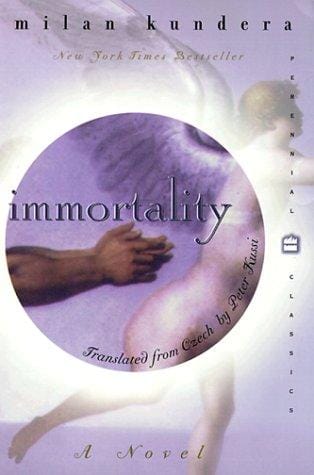Exploring 'A Short Stay in Hell': Infinite Libraries and Eternal Questions
Explore Steven L. Peck's novella 'A Short Stay in Hell'—a haunting tale of an infinite library, existential dread, and the search for meaning.

Introduction: A Hell Unlike Any Other
A Short Stay in Hell, the slim but unforgettable novella by evolutionary biologist and writer Steven L. Peck, delivers one of the most haunting portrayals of the afterlife in modern speculative fiction. In just over a hundred pages, Peck imagines a version of Hell that is neither fiery nor sadistic, but bleak, endless, and eerily bureaucratic. The narrator, a mild-mannered geologist named Soren Johansson, dies unexpectedly and discovers that the universe’s true religion was Zoroastrianism, a faith he never studied. As punishment for believing the wrong creed, he is sentenced to an eternity inside an infinite library where escape depends on locating a single book that tells his personal life story word for word.
Plot Overview: Searching for a Needle in an Infinite Haystack
The rules of this Hell are chillingly simple yet profoundly cruel. The library, called the “Library of Babel” by the long-suffering inhabitants, contains every possible 410-page book written with a set alphabet. Somewhere in that limitless collection is Soren’s precise biography. If he finds it, he may leave and ascend to a higher plane. If not, he will wander the endless stacks forever. At first, Soren approaches the task with scientific optimism, devising cataloging systems and collaborating with other searchers. Over centuries, however, hope decays into despair. Alliances collapse, violence erupts, and the sheer magnitude of infinity overwhelms all effort. Time loses meaning; relationships flare and die; memories blur. Through Soren’s eyes we witness how eternity strips away ambition, identity, and even sanity.
The Infinite Library: Inspiration and Implications
Peck’s library deliberately echoes Jorge Luis Borges’s iconic short story “The Library of Babel,” yet it pushes the concept to its most harrowing conclusion. The shelves extend in every direction; every conceivable text, from masterpieces to meaningless gibberish, waits somewhere in the dust. For readers, the setting raises a terrifying statistical truth: in a library that large, the chance of locating any single volume is effectively zero. The cruel genius of Peck’s Hell is that it dangles hope—escape is technically possible—while making success practically impossible.
Philosophical Themes: Meaning, Choice, and the Weight of Eternity
A Short Stay in Hell poses stark existential questions. If life and afterlife are governed by arbitrary rules, what does moral behavior matter? Soren, fundamentally decent and loving, is condemned simply for picking the wrong religion. The novella also interrogates the human craving for meaning. Inside the stacks, people invent games, religions, and rebellions to ward off psychological collapse. Some embrace nihilism; others cling to the slimmest chance of salvation. Through these responses Peck suggests that meaning is not discovered but created—yet creation itself becomes exhausting when time is limitless.
Another recurring theme is the fragile nature of identity. Over epochs, Soren forgets languages, personal details, even faces of loved ones. What remains when memory fades? Peck’s answer is ambiguous but poignant: empathy and connection persist longest, but even they erode under the friction of infinity. The novella therefore works as a meditation on mortality by paradoxically removing death. Without an endpoint, significance evaporates.
Connections to Borges and Beckett
Literary aficionados will notice echoes of Borges in the architecture of the library and Samuel Beckett in the dry, tragicomic tone of Soren’s narration. Yet Peck’s novella is not merely pastiche. Where Borges offers a thought experiment, Peck dramatizes the human cost of existing inside that experiment. Where Beckett often revels in absurdist stasis, Peck foregrounds emotional evolution: hope, camaraderie, hatred, resignation. The result is a story that feels both intellectually rigorous and viscerally moving.
Why You Should Read It
First, the book is refreshingly concise; you can finish it in an evening yet ponder it for years. Second, it offers a rare blend of suspense and philosophy: every turn of the page rekindles the impossible question—will Soren find his book? Third, the novella is a conversation starter. Whether you are religious, agnostic, or atheist, Peck’s premise challenges complacency about justice, salvation, and the kinds of afterlives we imagine. Finally, the story’s stark setting makes it ideal for fans of cosmic horror who prefer existential dread over jump scares.
Readers interested in library science, probability, or information theory will also find rich subtext. The staggering combinatorial math behind the library mirrors the overwhelming deluge of data in our digital age. In an era where we scroll past oceans of content, Soren’s plight feels eerily familiar: the struggle to locate the one piece of information that will make sense of everything.
Conclusion: A Personal Infinity
A Short Stay in Hell earns its growing cult status by turning an abstract puzzle into an intimate tragedy. Peck invites us to imagine eternity not as a fiery pit but as a monotonous office task multiplied by infinity. Yet within that dreadful premise he uncovers flashes of tenderness and insight that keep both Soren—and the reader—turning pages. The novella ultimately reminds us that what makes life bearable is its finitude; endings give shape to beginnings. By confronting us with a world where endings are denied, Peck urges us to recognize the urgency of our brief, beautiful, and mercifully finite now.



